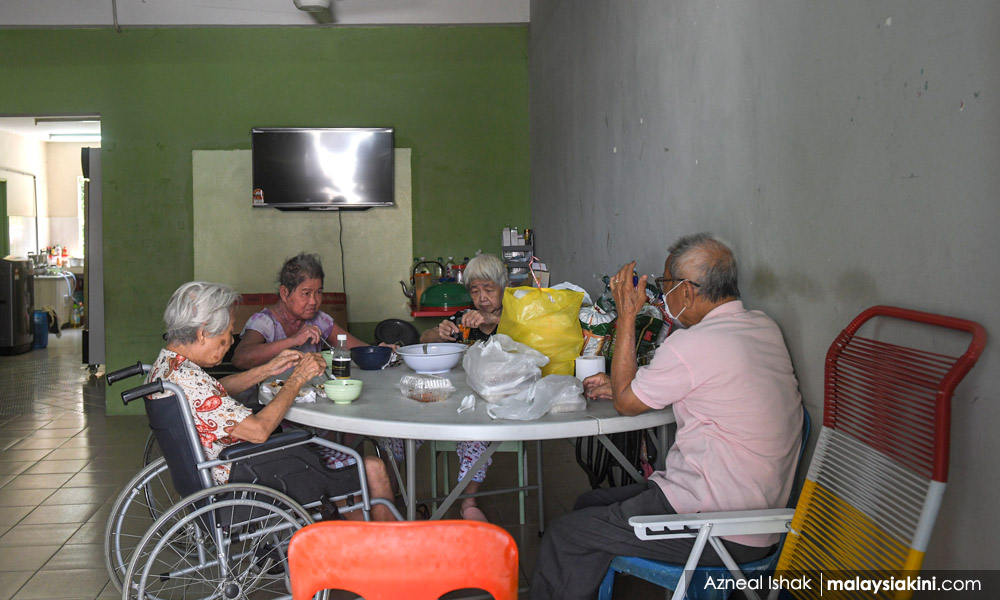INTERVIEW | Malaysian Healthy Ageing Society (MHAS) president Dr Shahrul Bahyah Kamaruzzaman wants to see the government mandate less sugar and salt in food products and restaurants.
This is to help decrease the incidence of diabetes, high blood pressure and other related ailments among the public.
“I dream of the day the government takes a firm line on these issues as there is clear evidence of its adverse effects in Malaysia in terms of childhood obesity, diabetes, premature cardiac deaths and strokes in the middle age to older population.
“The needs of Malaysia’s ageing population will only increase and we are unprepared for the physical, social and economic burdens accompanying it,” she told Malaysiakini in an interview.
She added that the government needs to look at the health of the nation through a life course approach - where every opportunity towards healthy living is taken seriously at every age.
“Our public health reforms must start by policing and implementing existing policies. It should begin with the food we feed our children to the regulation and taxes on sugar, salt, and cigarettes, among others, as well as active promotion and incentives towards a healthy lifestyle,” said Shahrul.
A consultant geriatrician by profession, Shahrul returned to Malaysia in 2002 after her geriatric training in Cardiff, Wales and took a PhD in Epidemiology and Population Health in 2010.
She decided to specialise in that field as geriatrics is one speciality that connects a truly multidisciplinary team of healthcare professionals, in addition to having the joy of working in a team.
Holistic care
“We holistically manage the acute and complex medical care of older persons, prevent frailty and promote their independence and good quality of life.
“Also, older persons were our past nation builders. I love and appreciate listening to stories of their life experiences, the rich history and heritage of our elders and how they’ve come to be where they are,” she said.
Shahrul cited the UK on how it had a long time to prepare for its ageing population.
“Its healthcare system provides seamless care across primary, secondary and tertiary healthcare centres to its population, not just the elderly.
“They invested in community care and training of all healthcare professionals to provide care in the community so people could age well,” she added.
According to Shahrul, Malaysia needs to review preparation for its ageing population not only through the proposed policy for older people but also by planning for it strategically across all ministries.

It means, she stressed, to make the planning process not as an afterthought but as a built-in strategy within the administrative, social and economic systems which includes the needs of older persons.
Shahrul took dealing with Alzheimer’s and dementia as examples.
One of the common problems when patients have symptoms of dementia or Alzheimer’s is that there is a strong element of denial from patients or family members - leading to delayed diagnosis and treatment.
“Alzheimer’s, dementia and other related dementias are rising in our population.
“As such, education and awareness of this disease must be prioritised via a public health platform so that the public and those with family members going through it understand and learn when, where and how to seek help.
“There shouldn’t be a stigma attached to it,” she said.
Shahrul called on the government to provide mandatory and free or subsidised health screenings to all persons over 70.
“This will help promote healthy ageing and prevent age-related disease that may jeopardise their independence, whether it is in their ability to drive, work or do other activities,” she added.
Medical marijuana a possibility
When asked about the possible usage of medical marijuana which is decriminalised in some other countries, she called for an open attitude, but with tight regulations and monitoring.
“We have seen its benefits, especially for treating conditions like chronic pain, glaucoma etc. Any plan towards decriminalising its use must be closely regulated.
“Plus, the government must review its ability to regulate its use strictly and effectively to ensure it is not abused,” she said.

The physician was then asked about the controversial debate in the West over euthanasia (assisted dying) for the elderly and terminally ill, where often the Hippocratic Oath and the principle of “do no harm” are usually invoked.
When queried about how keeping the patient alive and in pain is doing more harm than good, Shahrul said: “As our population ages, issues of death, dying and palliative care are important aspects to consider, anticipate and plan - especially when it comes to vulnerable older persons.
“We need to anticipate these issues by introducing a policy on advanced care planning.
“This will allow those who are vulnerable, frail or suffering from disabling chronic diseases, to legally plan their care and end-of-life medical care with a trusted and trained healthcare provider.” - Mkini



No comments:
Post a Comment
Note: Only a member of this blog may post a comment.